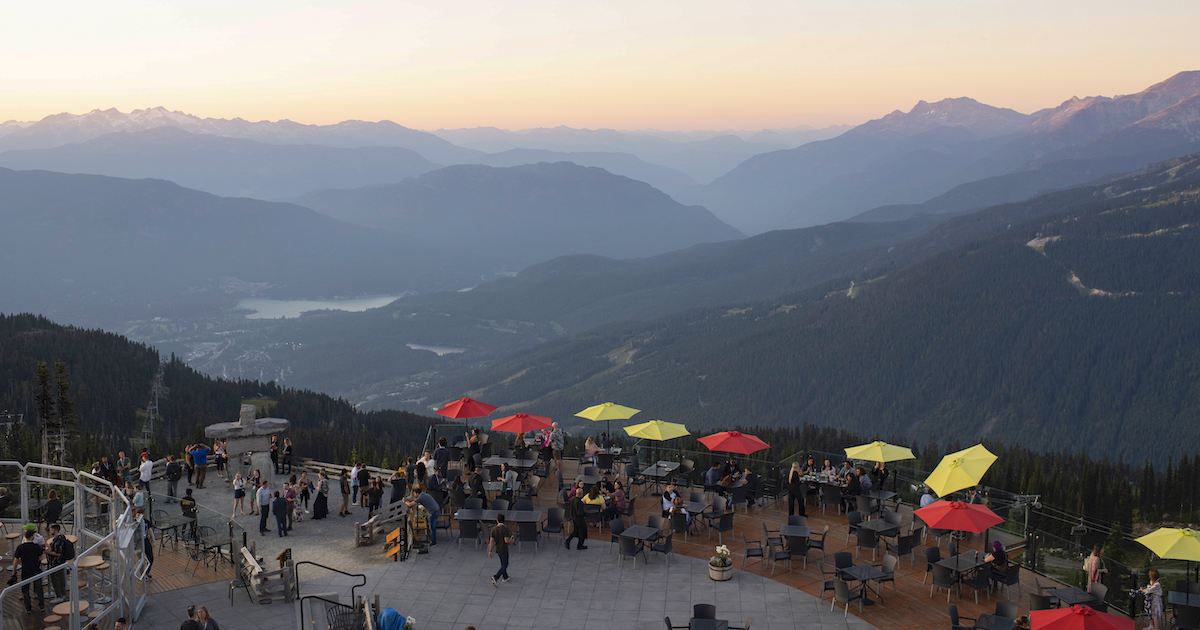On August 9, fully vaccinated Americans who met entry criteria were welcomed back to Canada for the first time in 16 months, with fully vaccinated travelers from around the world welcomed back Sept. 7. This is a most welcome development for those tasked with promoting Canada as a destination for tourism and events.
“We are thrilled to say that we will soon see an increase in both the size and number of in-person meetings in Canada, which will begin as early as fall 2021 (where restrictions allow),” says Chantal Sturk-Nadeau, executive director, business events for Destination Canada. “This is extremely positive news for the industry, and we anticipate a fast return to business events as a result of pent-up demand. We can’t wait to welcome back American business events and showcase the best of Canada.”
“We are thrilled to say that we will soon see an increase in both the size and number of in-person meetings in Canada.”
Sturk-Nadeau advises meeting planners to be fully informed of the latest pre-entry and on-arrival public health and federal and provincial testing requirements before returning to Canada.
“Travel to Canada will be a little different than it was prior to the pandemic. This includes the mandatory use of the ArriveCAN app,” she says, noting that the business events and travel industries have invested billions of dollars in health and hygiene protocols, retraining staff and reconfiguring experiences to prepare for visitors. “Visitors should plan for extra time in the lead up and upon arrival. It’s also important that delegates, as well as planners, are aware of local restrictions and health guidelines by visiting their travel destination’s website or Destination Canada’s COVID-19 Information for Planners page, which includes an interactive map that shows current travel requirements by province and territory for leisure or business travel.”
“Now we have hope”
Arlene Schilke, CEO of Edmonton-based Timewise Event Management Inc., says the easing of travel and gathering restrictions and increasing vaccination rates have allowed the company to get back to work planning in-person events.
“For the past year it has been impossible to move forward, as events take time to plan,” she says. “Now we have hope. We are starting off with smaller events this fall, which will lead to larger events in 2022.”
The first three iterations of the company’s signature event, GO WEST—which debuted in 2018—attracted more than 1,500 meeting professionals in person. The in-person experience was replaced with the GO WEST Virtual Series this year, but Schilke says the 2022 event will be in person (moved from January to April).
“This event is dependent upon open borders, for speakers and attendees, as well as large social gatherings,” she says. “We are confident that we will be able to carry through on its planning and delivery.”

Schilke says Timewise is hosting the Western Sponsorship Congress - Alberta Forum in November. The event attracts 100 to 150 attendees who represent nonprofits and charities, sports organizations, brands that invest in sponsorship and those interested in learning more about sponsorship marketing.
“We are confident that we will be able to deliver the event face to face without substantial COVID restrictions,” she says. “The appetite to meet in person is significant, as we have already reached 50% of our target registration numbers. Adding a virtual component will be determined closer to the event date and is dependent upon the interest of those who may prefer to attend online.”
Schilke says Timewise shifted from survival mode to strategic long-range planning once it was clear we would all be in the pandemic for the long haul.
“We have streamlined our business by reducing our overhead and focusing on high-value clients and projects,” she says. “It has been vital to stay connected with our industry through MPI, its online resources and our local chapter. Without MPI we would have felt completely isolated and abandoned.”
Leveraging strengths
Sturk-Nadeau says Destination Canada invested in research and market intelligence throughout the pandemic in order to better understand the new marketplace and the evolving needs of clients—as well as support Team Canada partners as they prepared for the return of in-person events. A five-phase marketing approach was developed, anticipating travel/gathering restriction updates and other changes.
“We also remained active in our key markets, ensuring that Canada was top of mind for business events,” Sturk-Nadeau says. “This involved ongoing messaging around Canada’s sector strengths—along with how these contribute to meaningful and engaging events and fuel global economic recovery through the connections and innovations that take place. As a result, our clients and partners were well informed and prepared to plan their next business events in Canada.”
Destinations throughout Canada are leveraging their strengths to attract events aligned with their key industry sectors and embrace local knowledge capital, according to Sturk-Nadeau.

“Influential life science centers like Montréal and Québec City are attracting global organizations within the sector, while technology hubs like Vancouver and Toronto are ideal for digital gaming events and esports,” she says. “In addition, cities like Edmonton and Calgary have invested in environmental and social sustainability and are attracting organizers who are looking for ways to make their events more sustainable.”
Sturk-Nadeau says buyers are sourcing incentive experiences more than ever due to Canada’s natural assets and wide-open spaces.
“We are seeing traditional incentive programs gain momentum, compared to business events that combine meetings with incentive trips,” she says. “We are also seeing a rise in demand for corporate retreats as a result of a renewed focus on building corporate culture and relationships.”
Photos courtesy Tourism Whistler, Timewise Event Management Inc. and Destination Toronto.



